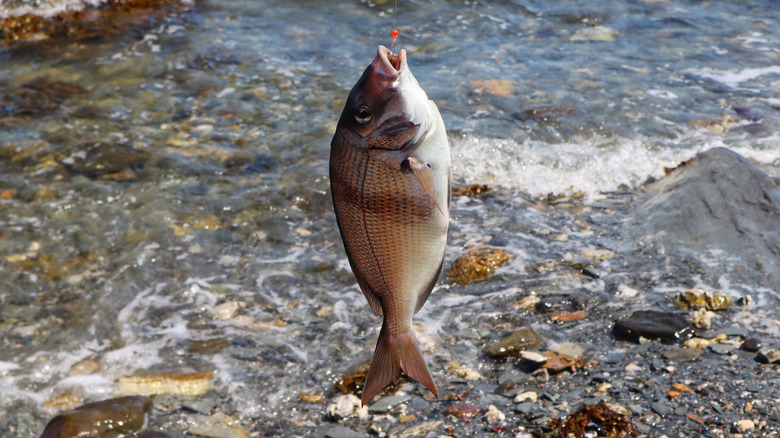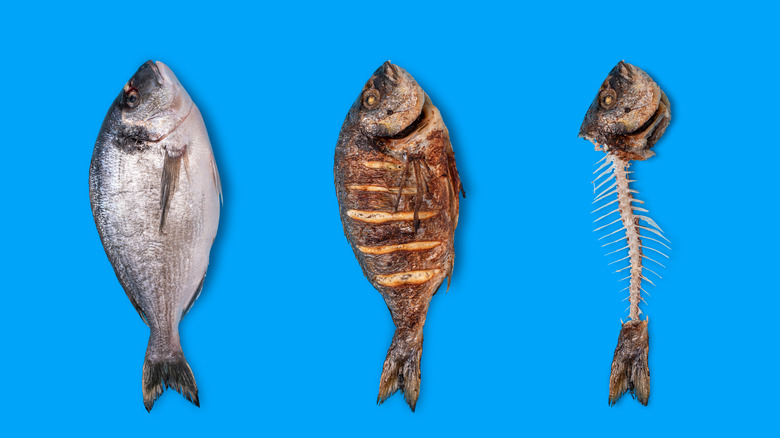This May Be Why Scup Is An Underrated Seafood Option In The US
In May, the U.S. Atlantic scup bottom-trawl fishery received the Marine Stewardship Council certification, meaning that the scup fishing operations of Lund's Fisheries and Seafreeze have shown they are following state and national laws. "This is an exciting step forward in recognition of a sustainable, underutilized fishery," said Seafreeze Fisheries Liaison Meghan Lapp (via Seafood Source).
Scup, which is also known as porgy and ironsides, is such an underutilized species of fish that you may not even be aware that it exists. Their population along the east coast of the United States has actually been growing since the nineties, per Seafood Source.
Scups are small and so, as Gavin Smith wrote for Martha's Vineyard Times, they are cooked whole. In their recipe, you stuff it with ginger chives and lemon, lather olive oil and salt on the outside, and cook it directly on a well-oiled grill. It can be served with a tomatillo sauce.
Americans don't eat whole fish
Despite the certification, it is unlikely that scup will become the next major seafood sensation. "It doesn't really sell," Louie Larsen said, explaining to Martha's Vineyard Magazine why he doesn't center his business around scup. "Scup is a wonderful fish. It's just bony, that's why most people don't like it."
This is a long-standing prejudice. In 2016, NPR covered the difficulty in getting Americans to eat herrings, another small fish that should really be eaten whole. "The mainstream American palate for seafood is really disappointing," Kirk Lombard, a commercial fisherman, said. "People want to eat fish that doesn't have any flavor, and they don't want to deal with bones." In 2019, Seafood Shack made a similar lament when championing whole fish, saying that American culture is used to the idea that if there is a bone in the fish, we send it back.
Alternatively, Salon writes, people simply don't want to stray from the seafood tastes they like. Either way, scup is likely to remain a regional specialty.

